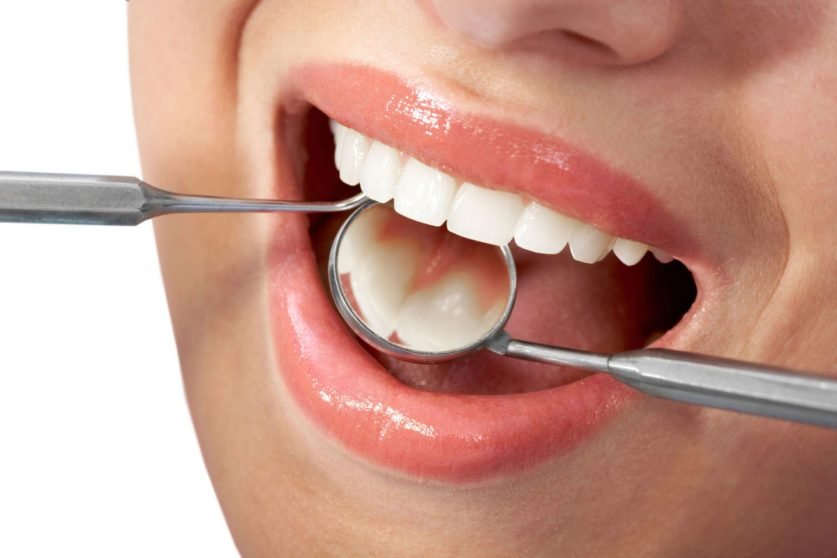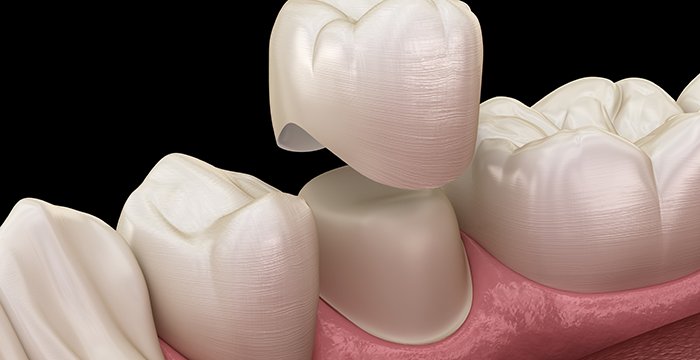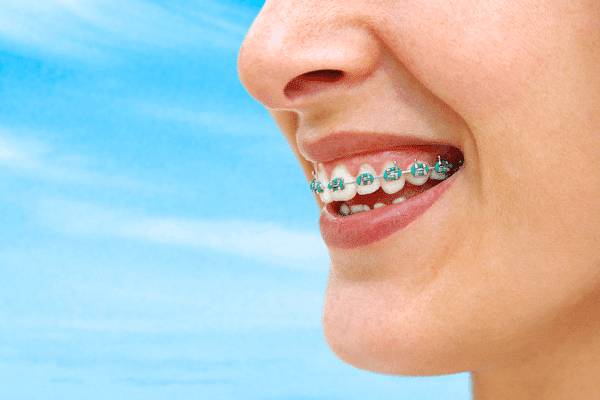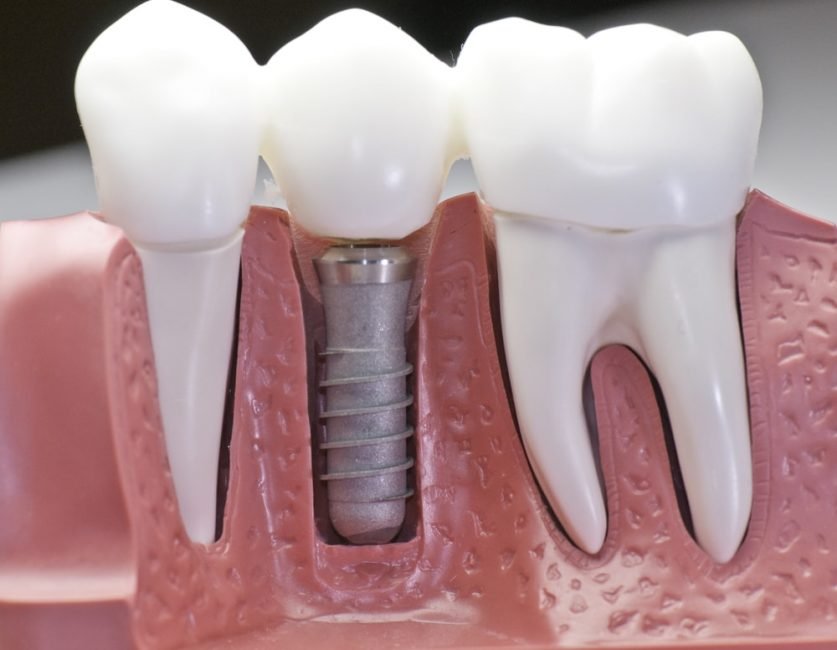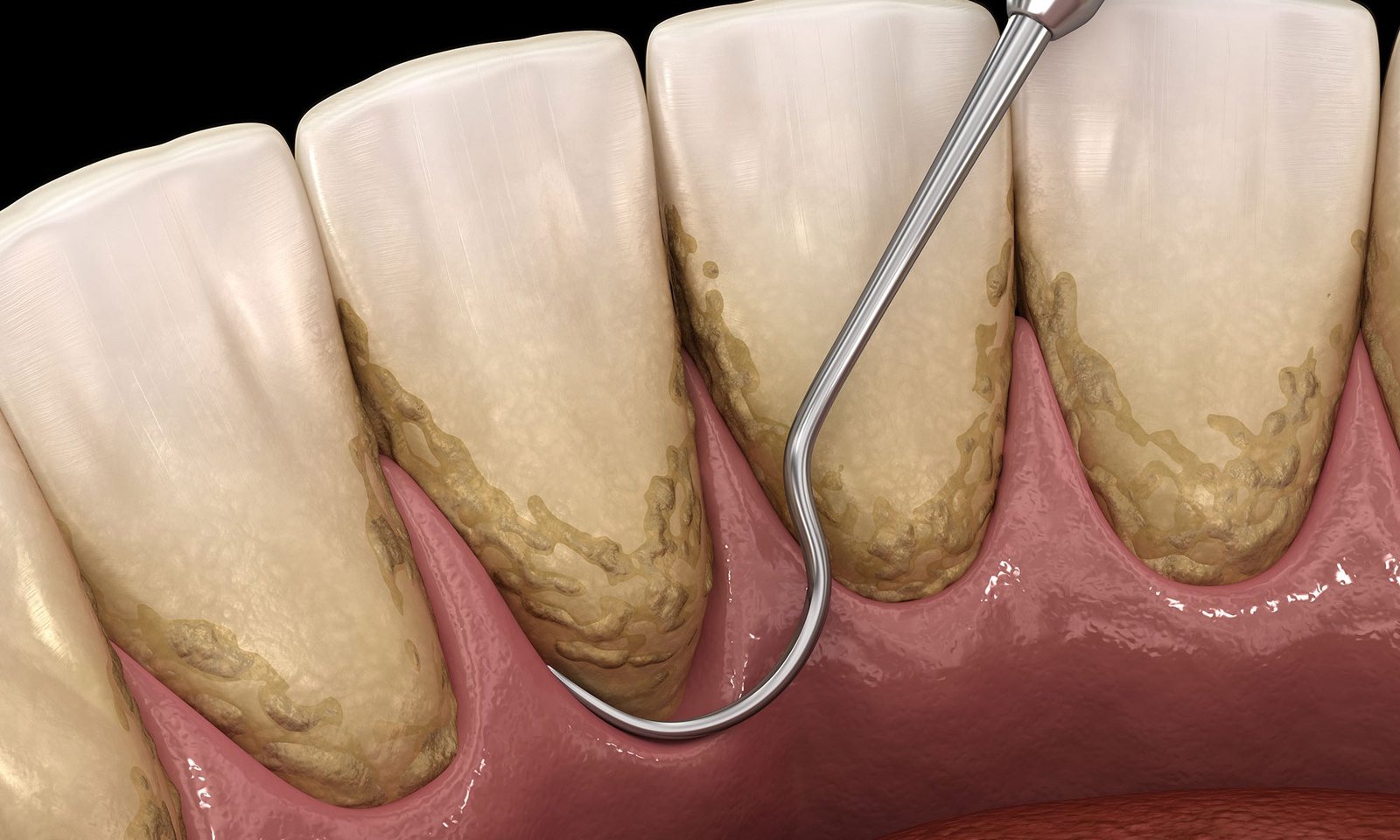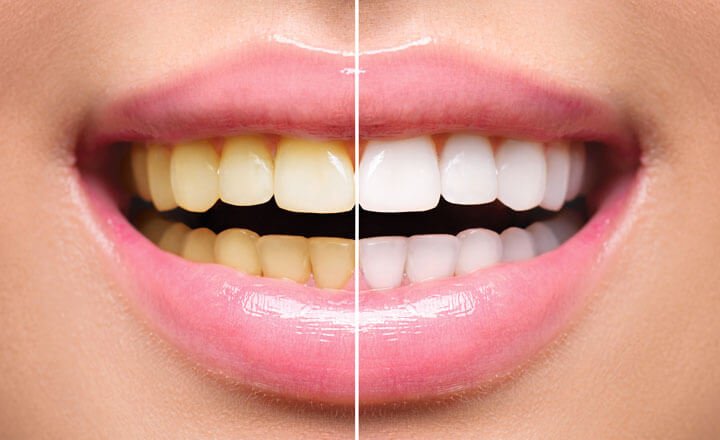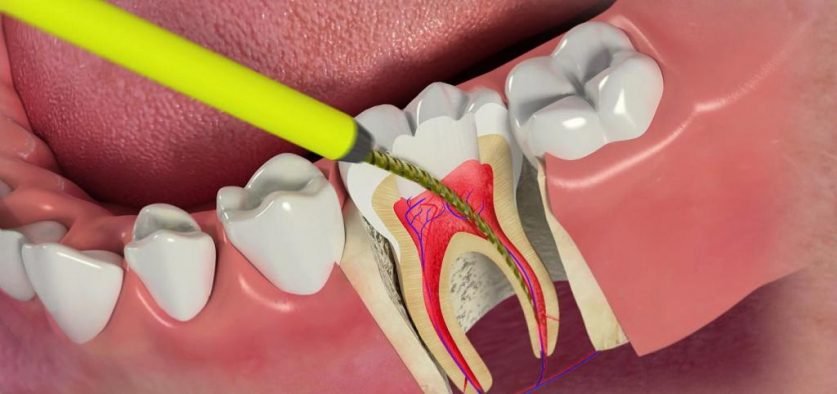Category: Dental
Common Dental Methods and How They Work.
Many people didn't visit a dentist in 77084 because they may have feared or thought it may cost too much. People fear the sound and the big machines in the dentist's office. So here are all the standard dental procedures you may need; if you are suffering from any of these, you will know what your dentist will do, and you can fear less and handle it easily. Teeth Cleanings Many people visit dentists' offices for teeth cleaning procedures. You must visit a dentist in cypress, tx, every 6 months for teeth cleaning. Brush and floss can't be efficient enough to get that professional cleaning, which is essential for oral health. It reduces the chances of developing any serious dental problems. Contact your general dentistry office for oral cleaning now! Teeth Whitening Teeth Whitening is a simple and less painful procedure. You may feel itching or sensitivity to the tooth because some people are sensitive to whitening agents. But overall, it is straightforward, quicker, and safer because professionals perform it. Dentists use hydrogen peroxide and a special light to whiten your teeth faster. Extractions When talking about extractions, it sounds risky and painful. And obviously, they are not counted as inadequate procedures. However, your dentist will do everything possible to help you feel comfortable during the process. Your dentist will numb the tooth when a tooth is pulled. You will not feel a thing! You may feel soreness after some time, but once extraction is done, you get rid of the pain forever. Veneers Your dentist may suggest veneers if your teeth are uneven or stained. These are well-liked restoratives for typical dental issues, consisting of a thin cap placed over the front portion of a tooth or set of teeth. Although they can also be used for Whitening, their primary application is correcting dental issues. Fillings Cavities are far too prevailing and straightforward to achieve. A filling is advised as the treatment for most holes, and a filling helps restore the tooth's function. Too much exposure to acids from food and your body can rapidly erode tooth enamel. Filling most cavities is a quick process. You'll likely be numbed, which will last a few hours, and the process will take an hour to complete. You might feel pressure while your dentist works on your tooth, but it will not be painful. Crowns Your dentist in cypress, tx, will suggest a crown if your cavity is large for the dental filling or the tooth's top has decay; the only solution for this condition is a crown. These treatments typically need two visits, but they shouldn't be particularly painful, unlike the filling. Your dentist will take a mold off your tooth. There are "printers" in some offices. They capture pictures and immediately create a crown using a special x-ray and computer setup! The fitting and securing of the dental crown will take place on the second visit, which is typically quick and painless. The dentist will numb the nerve and remove the tissue to eliminate the pain. The dentist will numb the area, so you will not feel any pain, just pressure. Braces/Invisalign Braces and Invisalign are best for correcting issues like crooked teeth or straightening teeth; The main goal is to straighten and correct crooked teeth, as teeth should be straight; they are often healthier and easier to take care of. Straight teeth do not cause any oral issues. Braces help teeth to move slowly back to their position and bring them to a straight position. Traditional braces use metal and other materials to tighten teeth back into place. At the same time, Invisalign is less visible and acts slowly, but it is still an effective way to achieve the same goal. The procedure to have them put on can leave a little ache at starting, but nothing to worry about. Conclusion Contact general dentistry near me; if you want any of the above treatments, visit and consult your dentist for the best solution for your teeth.
What Materials Do Doctors Use In Dental Crowns?
The Crown acts like a tooth cap, saving your tooth from damage or further injury. This procedure serves your tooth to restore its shape and size, increasing its strength and overall activity. Why do dentists use dental crown on a tooth? Dental Crowns are the best affordable option to restore and keep your tooth safe and healthy. Dentists use crowns when fillings dont work. Dental crowns are made from metals, porcelain, resin, and ceramics. They generally don't need special care, only good oral hygiene. What are Dental Crowns Made of? Dental Crowns are made from various materials; it depends on what type of tooth crown material a patient needs and chooses. Choosing a crown depends on the teeth' color, position, and the necessary function of the tooth. Types of dental crown material are: Temporary These crowns are made in the dentist's office to give the tooth coverage until the permanent one is made in the lab. Temporary crowns are usually made of stainless steel or acrylic-based material. They are not strong as permanent teeth, so once the dentist designs them in the lab, the dentist then places the permanent one. Stainless Steel It is a temporary solution that your dentist uses to protect a Tooth Decay and tooth filling, while a permanent crown made from another material is prepared for your teeth. Mainly dentists use stainless steel crowns for children to cover a primary tooth from tooth decay. And when the permanent tooth reaches, the Crown comes out naturally. Metals They have alloys with gold or platinum base-metal alloys like cobalt-chromium and nickel-chromium. These alloys are strong and can build long-term biting and chewing availability. They are durable and dont break or crack. They have s disadvantage of color, which is why dentists use them mainly for molars at the back. Porcelain-Fused-to-Metal Dentists mostly use them for the front or back teeth as they are solid. Dentists use porcelain crowns primarily to match the surrounding teeth' color and make them similar to the natural tooth. They have disadvantages that can chip and break. Zirconia It is gaining popularity in the last few years. Zirconia has become popular and widely chosen by people. They have high durability and strength that won't chip or break compared to all-ceramic or all-porcelain crowns. All-Resin All-Resin dental crowns are not costly. They are cost-efficient, and they do tend to break down or fracture. All-Ceramic or All-Porcelain They are the best cosmetic pick; these dental crowns provide an untouched color match far more pleasing than any other materials that dentists use. A person with metal allergies can use this material as it has no metal allergies. Dentists generally use all-ceramic or all-porcelain crowns in front-teeth restorations because they give the exact appearance of natural tooth color. They might not be as strong as metal crowns, but if kept with proper care can last long. Conclusion: Crowns help protect your teeth from damage and save them from extensive decay. They look like real natural teeth and give the best results if kept with proper care. Visit Cosmetic Dentistry Near Me to get a crown and consult for the best material that suits you.
What Do You Need To Know About Obstructive Sleep Apnea?
You have obstructive sleep apnea when you feel your upper airway partially or entirely blocked while sleeping. You must exert more effort with your diaphragm and chest muscles to widen your airway and draw air into your lungs. You might even short-stop breathing during such conditions. A loud gasp, snort, or body jerk typically signals the beginning of your next breath. You might have trouble sleeping, but you won't likely be aware of it. Get suggestions from family care dental to deal with this condition. Additionally, the illness may result in irregular cardiac rhythms and decreased oxygenation of your organs. Such a condition requires treatments from a sleep apnea dentist. What are the symptoms of Obstructive Sleep Apnea? The following are common obstructive sleep apnea warning signs: Feeling sweaty at night daytime fatigue or sleepiness sore throat or dry mouth early morning headaches Inability to concentrate, forgetfulness, sadness, or irritability Having trouble falling asleep sexual issues, such as a decreased sex drive Snoring Having a quick awakening and feeling as though you are choking or gasping difficulty in awakening frequently disturbance during the night. elevated blood pressure The disease of gastroesophageal reflux (GERD) Suppose these signals give an alert to your sleep apnea. In such conditions, visit a specialist to get sleep apnea treatment. What is the diagnosis process? The doctors will determine the severity of your disease based on your indications and symptoms, an examination, and tests. If they find you suffering from sleep apnea, they could suggest that you receive additional testing from a sleep specialist. They will check the back of your throat, mouth, and nose for excess tissue or abnormalities during the physical examination. Your doctor will check the back of your throat, mouth, and nose for excess tissue or abnormalities during the physical examination. So, they may take your blood pressure and measure the size of your waist and neck. What are the standard tests to detect sleep apnea in patients? A sleep specialist can perform additional tests to identify your disorder, gauge its severity, and devise a treatment strategy. The examination may need you to spend the night at a sleep center to monitor your breathing and other bodily functions while you sleep. Tests: The following tests can identify obstructive sleep apnea: Polysomnography. During this sleep study, professionals hooked you up to equipment that monitors your heart, lung, and brain activity, breathing patterns, arm and leg movements, and blood oxygen levels while you sleep. Professionals might monitor you all night or part of the night in an obstructive sleep apnea study. Sometimes, they monitor your condition during the first half of the night to detect the symptoms of obstructive sleep apnea. If you have sleep apnea, they may give you continuous positive airway pressure for the night's second half. This sleep study can also aid in the search for other sleep disorders, such as periodic limb movements during sleep or sporadic bouts of daytime sleepiness, which can also result in excessive daytime sleepiness but call for distinct therapies (narcolepsy). Sleep apnea testing at home. Your doctor may occasionally recommend an at-home polysomnography test to detect obstructive sleep apnea. Airflow, breathing patterns, blood oxygen levels, and potentially limb movements and snoring intensity are all typically measured during this examination. What are possible obstructive sleep apnea treatments? Treatment for Obstructive Sleep Apnea: Lose weight, if necessary. Even a 10% weight loss might have a significant impact. Avoid both alcohol and sleeping medications. These increase the likelihood that your airway will close as you sleep and prevent you from breathing normally for extended periods. Sleep with your side up. It may be helpful if you only experience mild sleep apnea when you turn over on your back. Nasal mists. These may be helpful if nasal congestion or sinus issues make breathing difficult while sleeping. These are some of the sleep apnea treatment options you might be looking for. If you think you have breathing issues causing your sleep trouble, book an appointment with your doctor and get the best treatment recommendations.
Why Are Teeth Pulled Out?
Although many adolescents and some adults have their wisdom teeth removed, there are additional situations in which adult tooth extraction may be required. Dental extraction near me may be necessary due to severe tooth decay, infections, or crowding. One or two teeth may need to be extracted to make way for the other teeth as they move into position for those who obtain braces. Additionally, compromised teeth may need to be removed to maintain oral health for patients who are receiving chemotherapy or are preparing to get an organ transplant. Tooth extraction is a short outpatient surgery done by dental places near me or an oral surgeon under local, general, intravenous, or a combination of anesthesias. An easy extraction is the removal of visible teeth. Broken, subsurface, or impacted teeth call for more extensive surgery. How to get ready for tooth removal? Your dentist will examine your tooth before the procedure is scheduled. Tell your dentist about all prescription and over-the-counter medications you take and any vitamins, dietary supplements, and herbal remedies. If you are soon receiving intravenous treatment for another medical condition using a medication known as bisphosphonate, let your dentist know. If so, the extraction should be performed before the medication therapy to prevent jaw osteonecrosis. What should I do before a tooth removal? Tell Houston dentist if you have any of the following issues as well: an underlying cardiac condition diabetes and liver illness thyroid condition kidney disease a broken heart valve, prosthetic joints, and adrenal illness an immune system that is compromised by a history of bacterial endocarditis Before performing the tooth extraction, your dentist might want to make sure all symptoms are under control or cured. In the days before the surgery, antibiotics could be advised if: You have an infection, a weakened immune system, or a specific medical condition, and the procedure is anticipated to take a lengthy time. What are the things you should consider for better sedation? Refrain from eating or drinking for six to eight hours before your visit if you will be receiving an intravenous (IV) anesthetic. Don't light up before. Let your dentist know if you have a cold. If you suffered nausea or vomiting the night before, tell your dentist. This may necessitate using a different anesthetic or delaying the appointment. Have someone with you drive you home if you're undergoing general anesthesia. What happens when a tooth is extracted? Your extraction will be simple or invasive, depending on whether your tooth is visible or affected. Dental extractions near me will be administered to you, numbing the area around your teeth so that the process will only cause you to feel pressure rather than pain. After loosening the tooth with an elevator and extracting it, your dentist pulls it with forceps. Conclusion If you suffer from pain and excessive sensitivity, you should visit a Dental Clinic for proper treatment. If your teeth are treatable with root canal treatment, they will save your teeth or in another case, your teeth need to be extracted.
When Should People Get Dental Braces?
If you have kids, you might worry about their dental problems due to their jaw or teeth developing improperly. According to Orthodontists In Miami, your kids may need to join the number of people who need braces or other orthodontic treatment. Continue reading if you're interested in learning when is the greatest time to acquire braces. Is orthodontic treatment just cosmetic? We must start by addressing that orthodontic treatment is not only for show. When you think of orthodontics, you probably picture straightening out misaligned teeth so you can smile more attractively. According to Miami Orthodontist, there are two sides to orthodontics, even though this is not untrue. The first is for improved aesthetics, while the second is to take care of any problems that make it challenging for the patient to breathe, eat, or speak. Therefore, if your children are experiencing problems beyond dissatisfaction with the appearance of their teeth, orthodontic braces treatment may help resolve these issues. At what age do people receive dental braces? The kids themself will determine when is the optimal time to start braces. Everyone develops differently; some children experience puberty more quickly and earlier than others. However, as a general guideline, children should receive children's orthodontic braces between 9 and 14. Usually, it occurs before kids reach puberty. As their jaw and teeth will already be in their post-puberty positions if they have already gone through it, altering them will be more challenging. When Should We Start Braces Treatment? A doctor must watch your children as they grow to ensure everything is progressing normally. You probably start sending your children to the doctor early for yearly exams for their general health. So, it only seems that their oral health would follow suit. When they turn seven, we advise you to take your children to the dentist and a Braces Orthodontist Near Me. Their permanent adult or permanent molars start erupting around age 6 or 7. Ensure your kids' jaws and teeth grow before they emerge as adult teeth. If not, any anomalies will need to be treated with more aggressive orthodontics. Bring your children in for regular dental exams from a young age so the dentist can track their growth and spot any problems while they are still small. They can then offer either interceptive or preventative care, which can help you avoid future occurrences that will take a lot of time and effort. What is the goal of middle dentition treatment? Middle dentition procedures aim to realign misaligned jaws, start to repair crossbites, and start the process of gently correct misplaced permanent teeth. The middle dentition designates a developmental stage during which the soft and hard tissues are remarkably malleable. As a result, it may be considered the best moment to start correcting a severe malocclusion. Once more, a dental device might be given to the child by the dentist. Others are removable, while other items are fixed. The child can still speak, eat, and regularly chew, regardless of the appliance. However, to lower the danger of stains and discolorations, decay, and cosmetic damage, children with fixed dental tools, should take special care to clean the entire mouth region daily. Conclusion We hope the above-given information will help you learn some beneficial information regarding children's orthodontic treatment and dental braces. For further information, please visit orthodontisbrace.com.
Why Do Dental Experts Perform Dental Implant Surgery?
In dental implant surgery, tooth roots are replaced with metal posts that resemble screws and are damaged, or replace a missing tooth with prosthetic teeth that resemble natural teeth in appearance and function. According to a dentist open on weekends near me, when insufficient natural tooth roots allow for the construction of dentures or bridgework tooth replacements, dental implant surgery can provide a welcome alternative. According to a walk-in dentist near me, the implant used and your jawbone's health will determine how they perform the procedure. It could involve multiple methods in dental implant surgery. The main benefit of dental implants is a reliable support for your new teeth and ensuring that the bone around the implant heals securely. The jaw bone might take several months to recover since it needs time. Are there any risks associated with it? Dental implant surgery poses some complications and risks like any other dental surgical procedure. Although problems are rare, they are usually minor and manageable. The risks of dental implants near me may include Damage or injuries surrounding the bones and structures, such as teeth or blood vessels Infection at the implant site Damage to the nerves that control your natural teeth, gums, lips, and chin may result in pain, numbness, or tingling. When dental implants in the upper jaw intrude into a sinus cavity, it might cause sinus issues. How do dentists evaluate and prepare for the dental implant procedure? You must undergo a complete evaluation to prepare for the operation because dental implants Houston need one or more surgical procedures. It includes a: Detailed dental examination. Houston dentist may also create dental X-rays, 3D photographs, and your teeth and jaw models. Review your medical background. You should discuss any medical or health issues you have, along with any prescription, OTC, and dietary supplement use, with your doctor. Also, the 24-hour emergency dentist near me might advise taking antibiotics before surgery to help avoid infection if you have specific cardiac issues or orthopedic implants. Treatment plan An affordable dentist near me will customize the treatment plan according to your specific dental requirements and condition. The treatment plan also includes factors like the number of teeth they need to replace and the condition of the remaining teeth and jaw bone. Does the dental implant procedure require anesthesia? Local anesthesia, sedation, or general anesthesia are anesthetic alternatives to manage pain during surgery. The ideal choice for you should be discussed with your dentist office near me with your dentist specialist. Depending on the anesthesia you'll receive, your dental care team will advise you on what food to consume before the surgery. Plan to have a driver or someone drive you home following surgery if you're under sedation or general anesthesia and anticipate needing to rest the rest of the day. What should you expect? They often conduct dental implant surgery as a series of outpatient treatments with recovery time. There are several steps involved in installing a dental implant, including: Removal of the damaged tooth. Jawbone grafting, if necessary. Dental implant placement Abutment placement Bone healing and growth Artificial teeth placement Conclusion We hope the above-provided information will help you learn some beneficial and informative details regarding dental implant procedures. For further valuable details, please visit urbndental.com.
What Is The Procedure For Deep Cleaning Of Teeth?
Do you know What is deep cleaning teeth? Deep cleaning is a procedure including two processes root scaling and root planing. Deep cleaning is not a regular dental cleaning, and it is different. This type of procedure goes under the gum line to clean deeply. This cleaning helps to remove hard spots like the roots and pockets at the base of your tooth that your dentist can't reach without a deep cleaning process. dentist appointment online is essential as a substance known as tartar builds up around the exterior of the roots of teeth. If left untreated, this tartar can increase and cause a severe bacterial infection. To stop this bacterial infection, Dentist Teeth Cleaning uses a technique known as periodontal scaling and root planing to remove this substance from your tooth. Your professional teeth whitening, uses an ultrasonic device to clean the tartar, which is not removed by usual scrapping. Avoid certain foods after a deep cleaning. After the deep cleaning procedure, your gums and teeth will be healing and sensitive, so your dentist will ask you to avoid certain foods. These are some foods that could interrupt the restoring process, and you should avoid them after the procedure: Avoid eating acidic foods like oranges and tomatoes. Food that is sticky and challenging, like steaks, hard candies, or large burgers. Dont eat food with small pieces that will get stuck in the gums, like nuts or popcorn. Deep Dental Cleaning Techniques Root Scaling is a process that assists in removing plaque, stain, calculus, and other accrued material attached to the tooth surface. Dentists manually remove these either by hand or with a unique dental tool called an ultrasonic scaler in cases of extreme amounts in your mouth. This helps in controlling oral and reducing oral bacteria. Root Planing – dentists use an ultrasonic scaler to help stop dental plaque, root surface endotoxins, and the left calculus. It aims to remove cementum and is done on the roots of the teeth that show bone loss with tissue collapse. It cleans your teeth properly that have been contaminated by damaging bacteria. It smoothes the tooth roots, which promotes healing and also helps prevent bacteria from colonizing in the future. As this treatment is more progressive than a regular cleaning, your dentist may give you anesthesia to prevent infection, control pain, or help heal, and your dentist may prescribe a pill or mouth rinse. Conclusion: You can deeply clean teeth whenever needed or occasionally, which benefits and maintains good oral health. Dental hygiene is essential in every aspect, and it fights bad breath and gum disease and detects early tooth disease. So it is necessary to keep your dental hygiene healthy by visiting your Dental twice a year for dental cleaning. Dont forget to brush and floss your teeth regularly and see your Dentist Near Me for regular checkups. Deep cleaning not only cleans your teeth but also eradicates other oral issues.
How Does Teeth Bleaching work?
Want a bright and white smile? Brushing and flossing keep your teeth bright and white. But if you still didn't get that white color. You can choose the tooth bleaching option to make your smile shinier. It is a cost-effective and standard procedure of cosmetic dentistry to make your teeth whiter and brighter. It is good to use bleaching rather than using methods like veneers, dental crowns, or other methods for tooth discoloration, but tooth whitening is not permanent. Teeth whitening or bleaching is an easy and affordable process. Your dentist will use whitening products containing one of two tooth bleaches: hydrogen peroxide or carbamide peroxide for teeth whitening. These two bleaches break down the stains into smaller pieces, making your teeth color white and less concentrated. You can use toothpaste too with hydrogen peroxide that will help you make your teeth whiter at home. Talk to the nearest dentist about Teeth Bleaching Services and processes before starting it at home or preceding it in dentistry. What are the Causes of Tooth Staining? The factors that affect tooth staining include: Age Age can be a general reason for staining teeth because as you age, your teeth start aging too and can change color too. As you age, your teeth change their color from white to yellow and then a little browny shade. The teeth absorb stubborn stains, which are not easy to remove. Eating habits: Consumption of deeply-colored beverages and foods like red wine, coffee, tea, cola, carrots, oranges, and other drinks can cause notable staining over the years. Moreover, sour or acidic foods such as citrus fruits and vinegar contribute to the erosion of the enamel, and then the surface becomes more transparent. Smoking and drugs habits: Smoking can make your teeth leave their color because it leaves brownish deposits, and nicotine leaves brownish residues that slowly soak into the tooth structure and cause tooth discoloration. Consuming more fluoride can cause teeth staining, which is not easy to remove. How to maintain White Teeth? Simply, you must avoid some beverages and food to keep your teeth white and prevent some acidic drinks. If you have bleached your teeth at home or teeth whitening Houston, you can maintain the results by flossing and brushing daily and visiting your dentist regularly. Beverages you should avoid such as black tea and coffee, White and red wine, Sports drinks, Carbonated beverages, Berries and other colored foods, Sauces (soy, tomato, curries), etc. Why Should You Talk to Your Dentist for teeth whitening? Take a dentist appointment near me and Talk to your dentist because bleaching can make your teeth sensitive if you do not use it properly. If you use bleaching agents for a long time, that can increase your tooth sensitivity. Visit the teeth bleaching near me dentistry before using it to ensure its cost and effects. If you have yellow teeth, bleaching will be effective on your teeth, but if you have brown teeth, it will be less effective, and having a gray shade in your teeth will not work. Conclusion: Teeth whitening treatment is effective for people who have no dental issues. Although if you keep your teeth healthy, brushing and flossing daily can keep your teeth white and healthy too, and it is the best and most affordable way to enhance your smile.
What’s The Lifespan Of Bonded Teeth?
According to dental bonding Miami specialist, how much bonding your teeth needs and your oral hygiene practices determine the longevity of dental bonding materials. Bonded teeth aren't as strong and durable as natural teeth, and specific methods can reduce their durability. For example, the bonding agent could come off teeth if you bite down hard. Additionally, if you have a habit of smoking or drinking a lot of dark beverages like coffee or red wine, your bonding substance will discolor more quickly and need to be replaced sooner. After three to ten years, bonding material needs to be touched up or replaced. Who does dental bonding work best for? The ideal candidates for tooth bonding are teeth with minor damage and moderate deterioration. You could prefer a dental implant over bonding if you have a severely damaged tooth or missing tooth, and dental implants replace the tooth and root with an implant and a porcelain crown. Before asking your dentist Miami shores about teeth bonding, you should whiten your teeth if you've always wanted to. If you afterward decide to whiten your teeth, only the color of your natural enamel will lighten, but the color of the dental bond won't change. Your dental expert will match the bonding to the natural color of your teeth. What are the major risk factors associated with teeth bonding? Dental bonding is a simple and safe outpatient procedure, and there are no major risks and complications in this procedure. Unlike dental veneers, orthodontist Hallandale fl dont grind down your teeth. So in case you damage the composite resin, you can fix it without worrying about what your weird teeth look like. Composite resin can also chip or break less frequently than crowns and veneers. What involves in dental bonding? If a filling is also necessary, or Miami shores dentist wants to alter your tooth's contour significantly. In that circumstance, teeth bonding is quick procedure that doesn't even involve the use of an anesthetic. If the tooth chipped close to your nerve, you could need anesthetic because the unpleasant repair operation might bump the nerve. The first step is to choose a composite resin color that matches your tooth as closely as feasible. Your dentist will consult a chart to ensure that their decision is sound. The dentist will then prepare to fuse the composite resin to your natural tooth. They will start the procedure by putting a bonding agent on top of a rough enamel surface. How to care for your bonded tooth? Nothing, not even composite resin, is as durable as your enamel and natural teeth. Therefore, even after your bond restores the tooth, you must still take good care of it. It would be best if you refrain from doing things like chewing on pens or ice cubes. Excessive consumption of hard meals and sweets might also harm your bond; however, these are also bad for your natural teeth. It's best to avoid them, especially if you have a history of teeth breaking or chipping. Additionally, it's crucial to remember that composite resin s not as stain-resistant than enamel over the long run. You risk developing long-term discoloration if you smoke or drink a lot of coffee, red wine, or both. Conclusion We hope the above-provided information will help you learn some beneficial aspects of dental bonding. For further informative details, please visit ivanovortho.com.
How Long Can a Root Canal Treatment Last?
Root canal treatment is helpful when a tooth's pulp becomes infected or inflamed by the bacteria, and this treatment can prevent it from needing to be removed. An endodontist can save your natural tooth by removing the pulp from the teeth and cleaning, shaping, and disinfecting the root canals using special tools. Your dentist cleans the pulp, and the tooth no longer contains living pulp tissue. It is fastened in the area by the periodontal ligament to continue functioning like your other teeth after removing the tooth pulp. Only in some cases does root canal treatment needs to retreat; usually, it lasts a lifetime. To keep your root canal healthy, practice good oral hygiene by brushing and flossing at least three times a day, especially after meals and before bed. Your tooth can still get affected if it has a root canal. That tooth can still get a cavity on it and but as the nerves are no longer present in that tooth, you may not feel any pain or discomfort or experience any other signs of a cavity. A Root canal recovery time is less than a week, sometimes depending on the case. That's why it is essential to get routine cleanings and checkups. Factors influencing the lifespan of a root canal treatment can be the Quality of Restoration: After the root canal process, you will need a dental filling or crown to restore the tooth. The quality of restoration, as well as its timing, can be a factor that can affect the lifespan of a root canal. It will be better to see a dentist restore your tooth before it worsens, and your tooth will be at a higher risk of complications. Good Aftercare Aftercare is essential as your teeth and gums may be sensitive due to the treatment and needs extra care, and your oral health doesn't end with dental treatments. Visit your dentist regularly to determine how long you need dental cleaning after the treatment. Regular examinations, teeth cleanings, and prompt treatment for problems are imperative to achieving long-term dental well-being. Consult your dentist: If you need a root canal treatment, contact a root canal specialist to schedule an appointment with the best root canal specialist near me. Root canal treatment is the best to treat the tooth nerve and restores the full function of the tooth back. Generally, a general dentist can treat the root canal, but if the case is complicated, an endodontist with special training in root canals may treat the patient. Conclusion: Root canal therapy is the most suitable mode to secure your tooth. They can last long if your dentist performs therapy carefully and correctly and you take good care of your mouth. After the treatment, it is vital to keep the area clean. By brushing and flossing gently, you can keep the root canal healthy. If you feel any discomfort or pain, make an appointment and consult your dentist. Leaving it untreated can harm other teeth, too, and can cause other severe dental issues.
Popular Categories
- Blog (13)
- Dental (138)
- Diet And Nutrition (15)
- Fitness (33)
- Health (194)
- Lifestyle (25)
- Mind & Body (15)
- Weight Loss (16)

